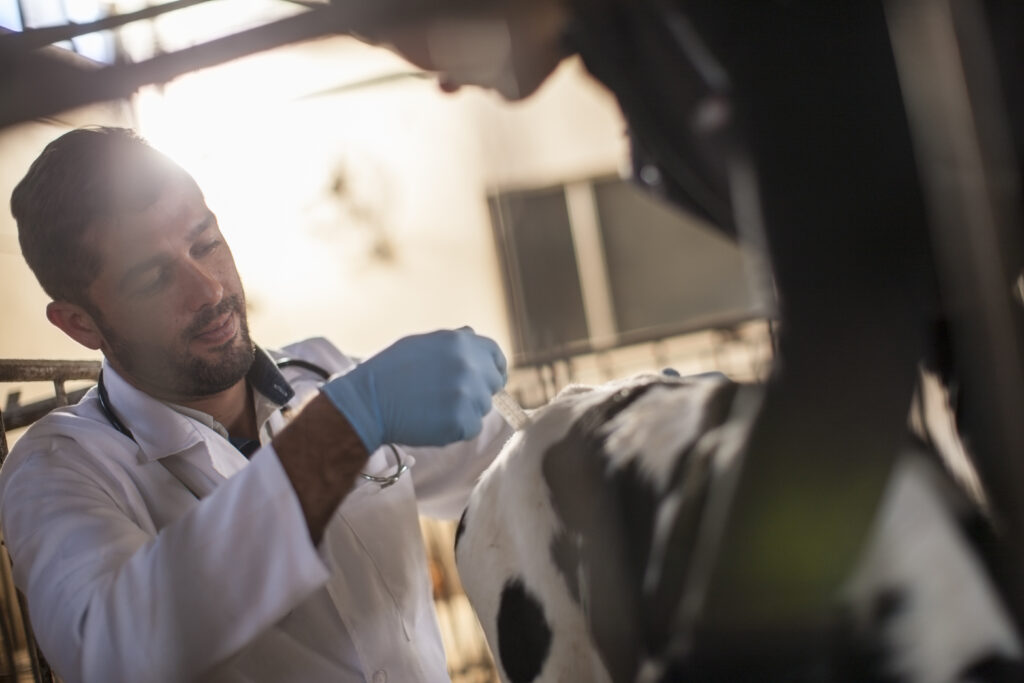Vaccines are highly necessary for prevention of diseases and are as important animals as of us human beings. Majorly there are five types of vaccines that are;
- Live attenuated vaccines containing a weakened version of the living virus
- Inactivated vaccines containing the killed virus
- Toxoid vaccines containing weakened toxins against bacteria
- Subunit vaccines containing essential antigens of the virus or bacteria
- Conjugate vaccines containing an outer coating of sugar-like substances
These vaccines help to create immunity to the diseases of livestock but there are numerous reasons for vaccine failure. There are several variables in the vaccination equation like human, animals and the vaccine itself. All these variables work together to create immunity. With so many variables, things can sometimes go wrong and the animal fails to develop the desired immune response. Provided the other variables are okay then we as livestock handlers are major responsible for vaccination failures because once we miss any of the variable, it leads to vaccination failure.
Here are some major causes of vaccination failure:
Wrong dosage:
Always read vaccine label very carefully and follow the instructions of manufacturer.

Wrong booster timing:
Always schedule the initial vaccination and mark the date of booster dose in vaccination card. Many vaccines require a booster dose 2-3 weeks after the initial dose.
Wrong vaccine injection site on animal body:
For proper immunity development vaccine need to be administered intra muscular of sub Subcutaneously. SO it’s very important to read the label carefully and follow the instructions.
Sick or thin animals:
Animals that are very skinny, sick, or under stress can fail to develop the desired response to vaccines. Cattle that are lacking in nutrients or are diverting nutrients to other physical needs may not develop the desired immunity. Young animals that still have residual passive immunity acquired from the mother since its birth, also may not develop lasting immunity.
Vaccination storage & handling:
Vaccines should be stored at the proper temperature. Check your refrigerator that you store vaccines in to make sure it maintains a constant temperature. Vaccines are sensitive to heat and freezing temperatures. Don’t store excess or unused, vaccine. Use all vaccine immediately and discard any unused vaccine. Be sure to use vaccines before the expiration date. Expired vaccines may become ineffective causing the animal to fail to develop immunity.

Here are few points that must be noted while vaccinating your livestock
- The cold chain of the vaccines must be maintained till the time of administration to the animal.
- The manufacturer’s instruction on the route and dosage should be strictly followed.
- Animals must be in good health at the time of vaccination.
- A minimum vaccination coverage of 80% of population is required for proper control of the disease.
- It is beneficial to deworm the animals 2-3 weeks before vaccination is carried out for better immune response.
- Vaccination should be carried out at least a month prior to the likely occurrence of the disease.
- Vaccination of animals in advanced pregnancy may be avoided even though in most cases nothing untoward may happen.
At Dasan Feeds, we have a team of expert veterinary doctors to guide you about vaccination, feel free to contact us.

